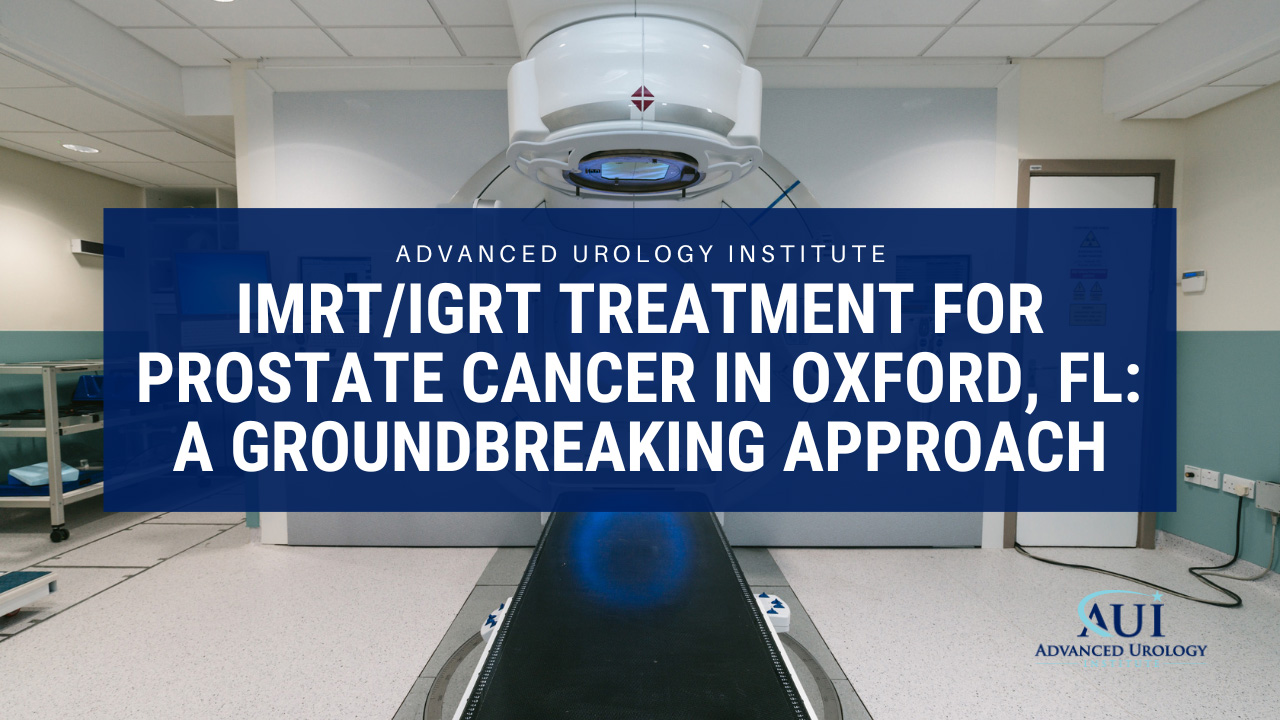Key Takeaways:
- The Advanced Prostate Cancer Institute fosters connections between staff and patients throughout treatment, creating strong bonds.
- Patients reflect positivity and satisfaction with the care, citing the emotional support and camaraderie provided.
- The Advanced Urology Institute is the ideal choice for prostate cancer treatment, with a network of skilled professionals and a focus on patient satisfaction.
Building Team Excellence
As you walk through the doors of the Advanced Prostate Cancer Institute (APCI), the feeling of dedication, competence, and warmth is palpable. This sentiment emanates from the words of Martin Tompkins, Practice Manager at the Institute located in Oxford, FL. “I really feel good about our team here,” he says, underscoring a commitment not just to technical mastery, but also the cultivation of a supportive environment for patients and their families.
Beyond Treatment: Building Connections

Unlike the fleeting interactions at some medical centers – an x-ray, a diagnosis, a treatment – the Institute prides itself on a different kind of relationship. Treatment for prostate cancer at the Institute often extends over 40 to 45 sessions, which provides a unique opportunity to foster connections. “We get to know their hobbies, the things that they like to do, the places where they’re from, their experiences,” Tompkins explains.
This connection extends beyond medical discussions. Staff and patients share successes, life stories, and even advice on personal tribulations. The bond formed over these courses of treatment can be so strong, in fact, that Tompkins laments, “it’s very sad when a patient finishes.” However, these endings also offer great satisfaction, hearing patients say, “I hated to meet under these circumstances but I’m glad that it turned out the way it did.”
Patients Reflecting Positivity
Satisfaction with patient care isn’t just internally reflected within the office – it’s echoed in the voices and faces of those treated. The APCI proudly features testimonials of happy patients, sharing stories of their time at the office and the exceptional care they’ve received. These stories paint a hopeful image of a place where treatment is provided alongside emotional support, camaraderie, and shared stories. “What a wonderful experience it was despite the circumstances,” they say.
Advanced Urology Institute: The Best Choice for Prostate Cancer Treatment
The Advanced Prostate Cancer Institute is a part of the Advanced Urology Institute(AUI), the largest urology practice in Florida. AUI’s network of skilled professionals, extensive experience with prostate cancer treatments, and the desire to treat every patient like a member of the family make it the ideal choice for those navigating prostate cancer.
Choosing a treatment center for prostate cancer is not just about the technical capabilities of the office. It’s also about the emotional support and personal connections forged throughout the treatment process. Choose the Advanced Urology Institute, where patient treatment and satisfaction is the number one priority.
References:
- Prostate Cancer | Advanced Urology Institute. (2023, June 7). Advanced Urology Institute. https://www.advancedurologyinstitute.com/conditions-we-treat/prostate-cancer/
- Advanced Urology Institute. (2023, September 12). What Technologies Are Used in APCI. Advanced Urology Institute. https://www.advancedurologyinstitute.com/what-technologies-are-used-in-advanced-prostate-cancer-institute/
- Watson, S. (2016, May 25). Faces of Healthcare: What Is a Urologist? Healthline; Healthline Media. https://www.healthline.com/health/what-is-a-urologist
- Prostate Cancer Treatment. (2023, February 16). National Cancer Institute; Cancer.gov. https://www.cancer.gov/types/prostate/patient/prostate-treatment-pdq
- CDCBreastCancer. (2020, August 18). What Is Prostate Cancer? Centers for Disease Control and Prevention. https://www.cdc.gov/cancer/prostate/basic_info/what-is-prostate-cancer.htm
















